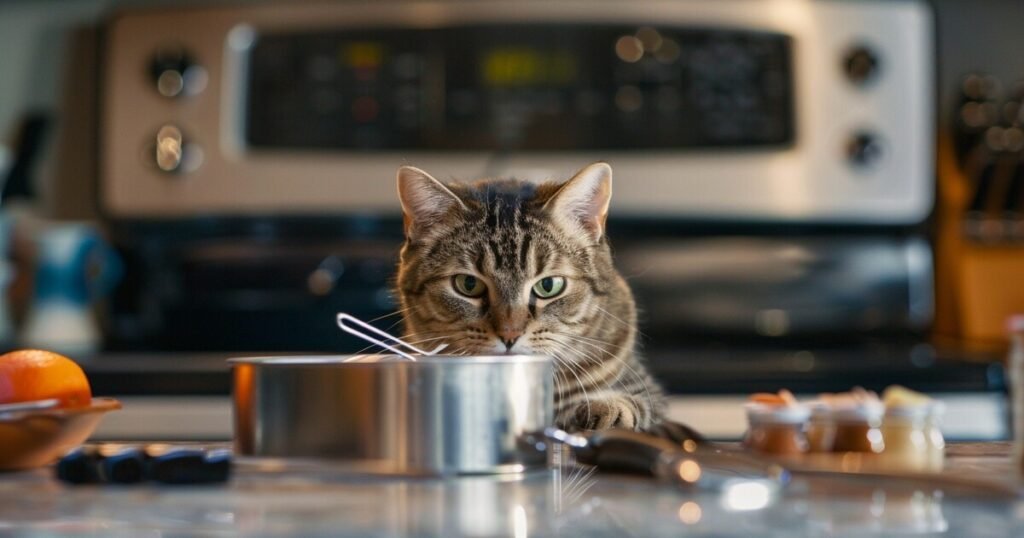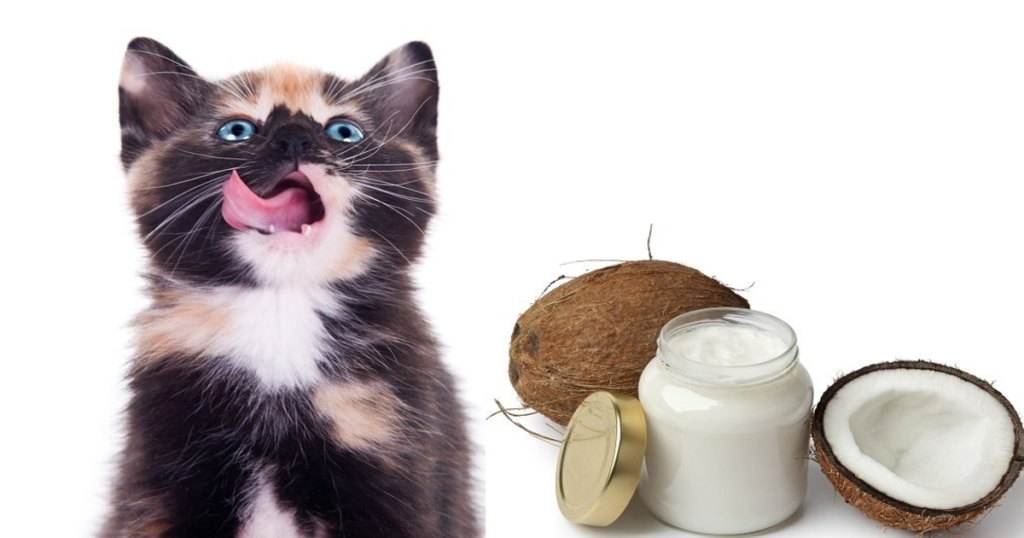In the quiet stillness of a morning, as light filters through the curtains, our feline companions stir their graceful movements a ballet of curiosity and grace. These mysterious creatures, with their soft purrs and curious eyes, have a way of drawing us into their world—a world where every gesture and glance holds meaning.
As guardians of these gentle souls, we ponder the simplest questions with the deepest care. Among them, one that often arises is: Can cats have coconut milk?
Coconut milk, with its rich, creamy allure, has become a beloved ingredient in many households. Its smooth texture and exotic flavor evoke images of tropical breezes and sun-drenched shores.
As we indulge in this velvety liquid, it’s only natural to wonder if our cats might also partake in its pleasures. But as with all things we share with our pets, caution and knowledge must guide our choices.
The Nutritional Reality: Understanding Coconut Milk’s Role
Coconut milk is a product of the mature coconut’s flesh, blended with water to create a luxurious, fat-rich liquid. For humans, it offers a range of health benefits, primarily due to its content of medium-chain triglycerides (MCTs), which are known for their potential to boost energy and metabolism.
However, our feline friends are not small humans, and their dietary needs are uniquely tailored to their carnivorous nature.
Cats thrive on a diet predominantly composed of animal proteins and fats, and their bodies are finely tuned to process these nutrients efficiently.
Coconut milk, though not toxic, is a plant-based fat that cats do not require and may struggle to digest. Consuming coconut milk can lead to gastrointestinal upset, manifesting as diarrhea or stomach discomfort—an experience far removed from the calm and contentment they so often seek.

The Temptation of Novelty: When to Resist
Our desire to share our world with our pets is a testament to the deep bond we share with them. Yet, this bond requires us to act with wisdom, especially when it comes to their health. Coconut milk, tempting as it may be, is not a treat that aligns with the nutritional needs of our cats. While a small taste may not cause immediate harm, it is not advisable to offer it regularly or in significant amounts.
Instead, we can turn to treats that are specifically formulated for cats, ensuring that we meet their dietary requirements while still offering them the joy of a special indulgence. In this way, we honor their well-being and preserve the harmony of their delicate systems.
A Thoughtful Approach: Consulting the Experts
As caretakers of our cats, we bear the responsibility of making informed decisions about their diet and health. When in doubt, consulting a veterinarian is the wisest course of action. These professionals possess the expertise to guide us in providing the best care for our pets, ensuring that our well-meaning actions do not inadvertently cause harm.

Final Reflection: A Bond Rooted in Care
The love we share with our cats is a quiet, profound connection, one that transcends the simple act of feeding. It is a relationship built on trust, mutual understanding, and the daily rituals that weave our lives together. As we navigate the choices that come with this bond, let us remember that the most nourishing gift we can offer is our unwavering care.
So, the next time your cat looks up at you with curious eyes as you pour yourself a glass of coconut milk, take a moment to consider their needs. Offer them a treat made just for them, and cherish the purrs of contentment that follow. For in the end, it is not the exotic or the novel that strengthens our bond, but the consistent, gentle care that speaks of a love that is pure and true.
Conclusion:
In the tender dance of care we share with our feline companions, every choice we make is a note in the melody of their well-being. Coconut milk, with its allure of distant shores, may seem a tempting offering, but it is not a gift meant for them. As we hold them close, let us remember that true love lies not in what we share from our table, but in the thoughtful choices we make for their health. In the soft purrs of contentment and the quiet moments of trust, we find the true measure of our bond—a love that is simple, enduring, and pure. And also find more useful information about pets on Cooper Pet Cares.
Frequently Asked Questions: The Gentle Whispers of Curiosity
Can my cat have a small taste of coconut milk?
In the realm of indulgence, a small taste may pass without harm, but even a sip of this creamy nectar can stir discomfort in their delicate bellies. It is a pleasure best admired from afar, with love guiding our restraint.
Is coconut milk toxic to cats?
While coconut milk does not carry the bitter sting of poison, it is not a friend to the feline form. Their bodies, attuned to nature’s carnivorous call, are unaccustomed to its rich, plant-based fat.
What should I do if my cat accidentally drinks coconut milk?
Should your curious companion take a sip, remain calm. A single taste may lead to minor discomfort, but in most cases, it will pass like a fleeting cloud. If distress lingers or deepens, let the wisdom of your veterinarian be your guide.
Are there any benefits of coconut milk for cats?
Though it may offer treasures of health to humans, for cats, coconut milk holds no such gifts. Their nourishment lies in the simplicity of animal proteins, where nature’s design fulfills their every need.